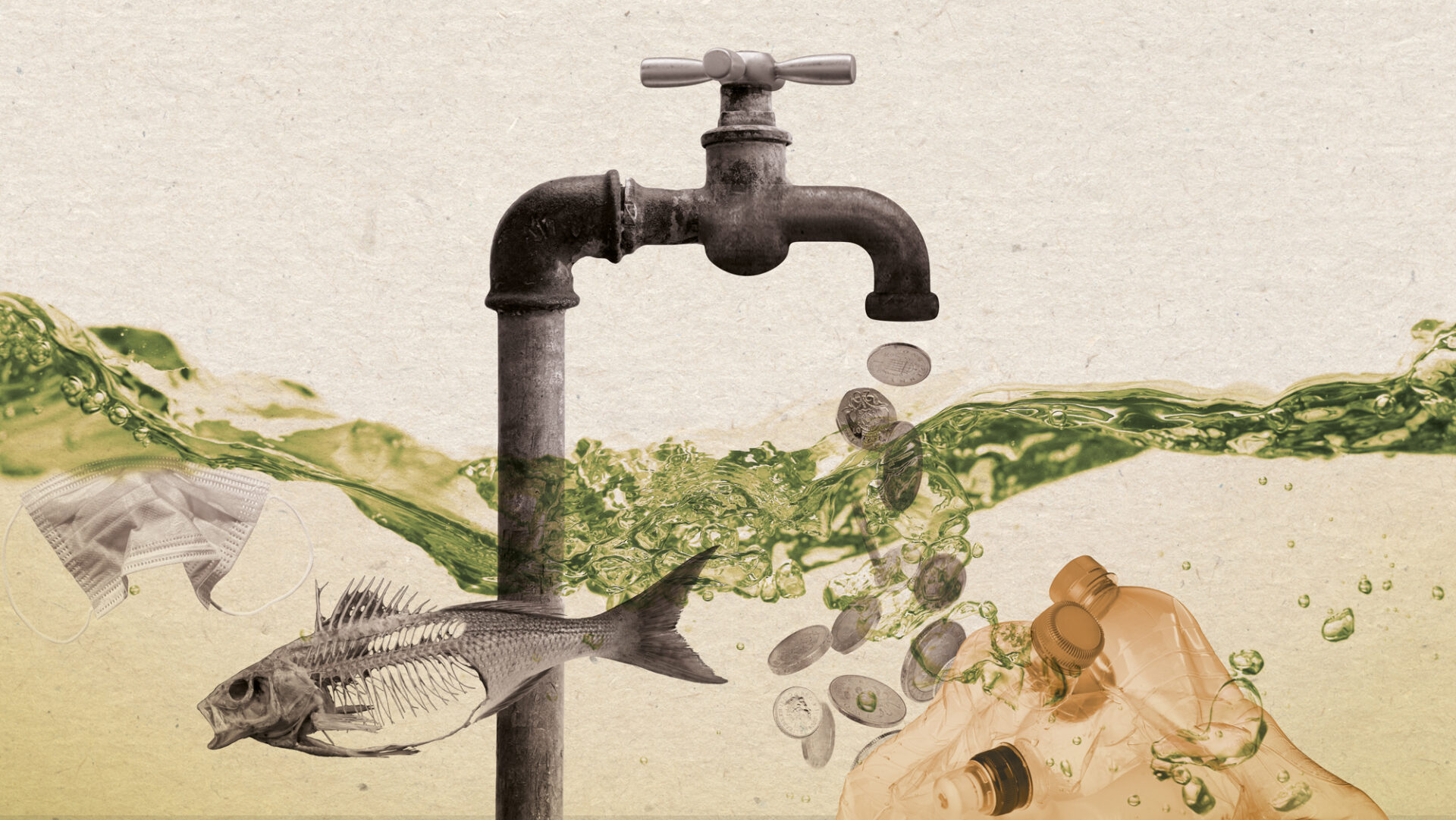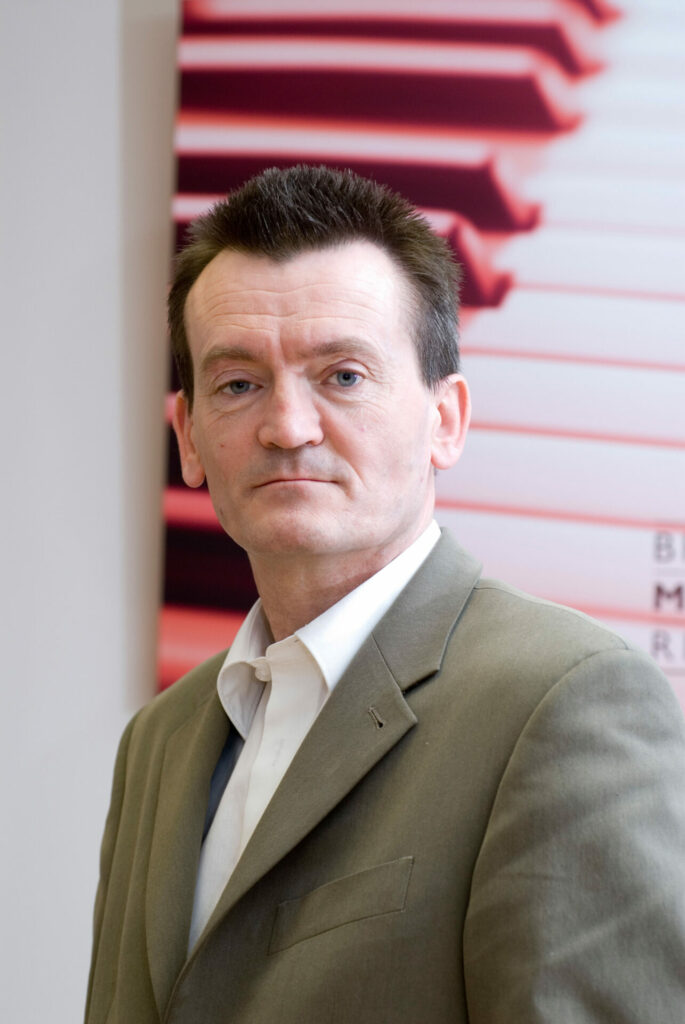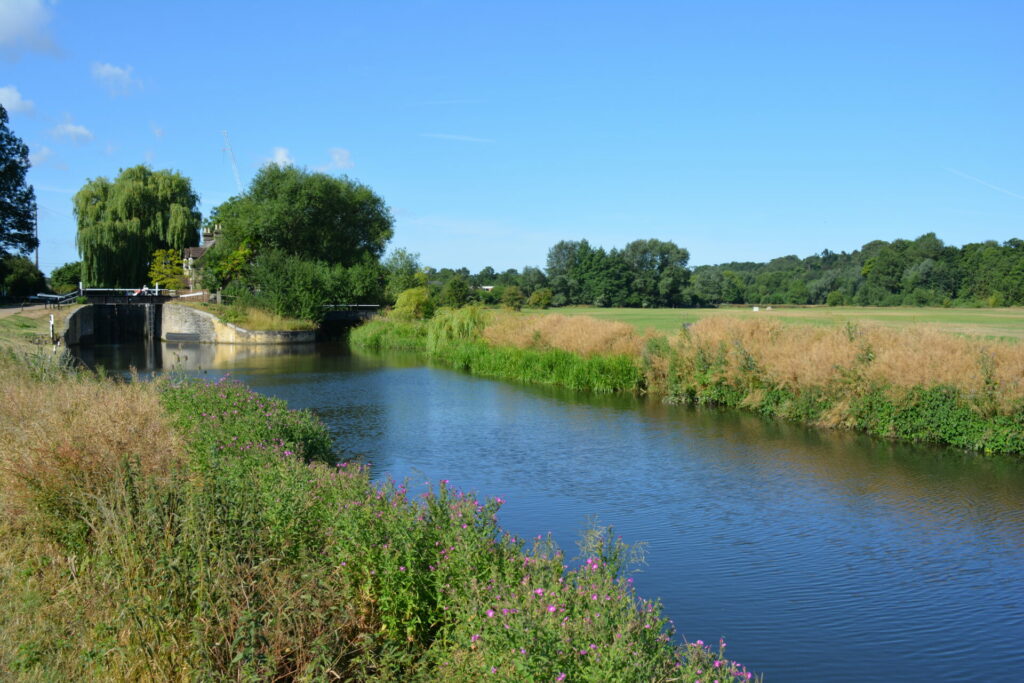The dirty truth about the UK’s rivers
Thanks to agriculture, sewage, roads and single-use plastics, not one river in England is unpolluted. Incensed by the state of our waterways, 80s Irish pop star and keen fly fisherman Feargal Sharkey is determined to make the Environment Agency and the water companies clean up their act
By Simon Childs

Feargal Sharkey used to be someone who might appear in the pages of Rolling Stone because of his music. The Derry-born singer shot to fame with the Undertones, with their legendary single ‘Teenage Kicks’ — a song so good John Peel played it twice in a row on Radio 1.
From there he had a successful solo career before moving into the business side of the industry, eventually becoming head of UK Music, the music industry’s umbrella lobby group. But today Rolling Stone UK is speaking to him in his latest incarnation — Sharkey the environmentalist, hell bent on saving our rivers from wholesale pollution.
Britain’s water companies have admitted to discharging raw sewage into rivers and seas more than 1,000 times a day in 2021. This is despite the rule that untreated human waste, dirty water and rainwater should only be released via storm overflow pipes in extreme weather to relieve pressure in the sewerage system. However, over the past three years, water companies have used the overflows as a matter of routine, discharging untreated sewage rather than processing it.
Sharkey is now a champion of Britain’s rivers, making regular appearances railing against pollution in the media and, in April 2021, in front of a committee of MPs. He might be just what these unique and delicate ecosystems need.
When we meet, Sharkey has just spent a couple of hours watching wild brown trout feasting on mayfly on a river in north London. Being in nature, he says, helps him to “push all the other rubbish to the back of my mind”.

Most people reading this will know you as a legendary punk singer and solo artist. So how did you end up as an environmental campaigner?
Feargal Sharkey: I’ve been fly fishing longer than I was ever a musician. I developed an interest at school. In Derry, because of the location, I could get on a bus in the centre of town and go in one direction, and 20 minutes later find myself on the banks of the River Faughan, with a fairly reasonable possibility of catching the salmon.
Did you keep the fishing up when you were with the Undertones?
Feargal Sharkey: Clearly, for a few years rock’n’roll took precedent! But when I started doing the executive thing, I began to develop a pattern. It’s quite easy working for record companies to get sucked into just incredible, lunatic hours. So I got into this thing that every five or six weeks, I would deliberately take off a long weekend and go and just do something really nice. It was during that process that I rediscovered my love of fly fishing. It became some weird form of therapy. There’s an old saying: “There is more to fishing than catching fish.”
“If a little bunch of people who just want to go fishing had to take the very government agencies supposed to be protecting those rivers to the High Court, what the hell else was going on out there that nobody knew about?”
— Feargal Sharkey, campaigner and former rock’n’roll star
How did this lead to your campaigning?
Feargal Sharkey: The campaigning thing is not something I ever planned on doing. I effectively retired 10 years ago. The Amwell Magna Fishery — the oldest fishing club in England — owns two-and-a-half miles of the River Lea in Hertfordshire. When I became its chairman, it became clear that there were a number of issues involving the flow and volume of the water — it was stagnating due to lack of flow. The Environment Agency had known what the problem was since 2003 and how to rectify it — and, quite frankly, did nothing about it, or as little as possible, until we started taking them to the High Court to get everyone’s attention.
That made me curious. If a little bunch of people who just want to go fishing had to take the very government agencies supposed to be protecting those rivers to the High Court, what the hell else was going on out there that nobody knew about? That gave me an itch. And rather stupidly, I scratched that itch. Well, it turns out for the past three-and-a-half years, I’ve been scratching that itch every day — and I’ve just ended up with an even bigger itch.
You found out that this wasn’t an isolated problem?
Feargal Sharkey: There is not a single river in England that is not polluted — not one. And people have known about this stuff for decades. We’ve got three decades of lack of political oversight and a complete failure of the regulators — the Environment Agency and Ofwat. The water industry has completely gamed the system to their benefit. Water companies have over the past 30 years extracted in the region of £72 billion of value in terms of dividends and interest payments. That’s £72 billion worth of bill-payers’ money. And in return, we’ve ended up with rivers full of sewage.

Feargal Sharkey: In the south-east of England, you have the added bonus of over-abstraction being caused by water companies to provide water for public water supply, because it was the cheapest thing for the water companies to do. Now, bear in mind that there are only 225 chalk streams on the entire planet. They are some of the rarest habitats on Earth and about 85 per cent of them are here in southern and south-east England.
Do you feel like you’re making any progress politically?
Feargal Sharkey: We’re on the agenda. Were we on the agenda three years ago? No. The problem is that the government have done the classic knee-jerk, Whitehall, bureaucratic reaction and produced a ‘process’ and it’s designed to make everyone look like they’re being busy and doing things, but all of it, quite frankly, is utterly meaningless and pointless. I think the plan is that possibly, maybe, they might be able to save some of these rivers by 2050. A lot of these rivers, like the River Wye, don’t have another three years, never mind another 30 years.
Do you ever wish you could just chill out?
Feargal Sharkey: This is where you get into the slightly Freudian bit of the discussion. One of my earliest childhood memories is being about 10 years old in around 1968. I’m in the middle of this protest march, walking down the middle of the dual carriageway waving what I later figured out was an anarchist flag, taking part in this People’s Democracy March, which was the real left-wing end of the Civil Rights Movement in Northern Ireland. And that was my parents. They instilled in all their children a sense that where there is a perceived injustice, do not under any circumstances sit idly by and do nothing about it. There’s a second layer to that: that if you’re going to do something, anything, in life, then do it properly. Don’t screw around, don’t waste the opportunity. Don’t take some half-arsed approach to something. That explains the pattern my life developed.
So here’s the thing, Mr Government, it’s a very easy game to play. You know what you need to do to sort this out. Get on with it, come up with a plan, fix it. And I will happily, quietly, and successfully go back into my retirement and with some pleasure leave you alone.
Taken from the August/September 2022 of Rolling Stone UK. Buy it here.
